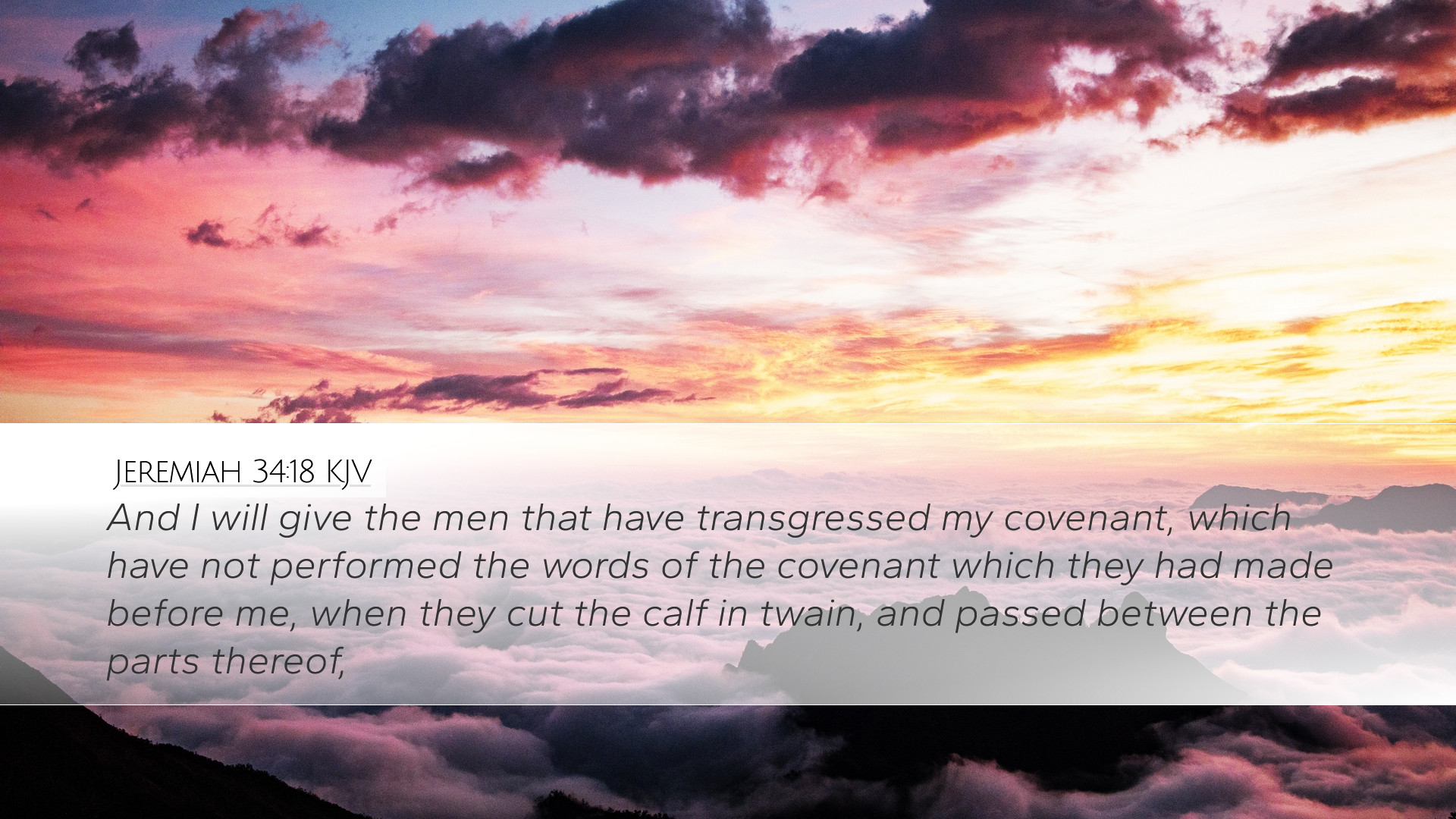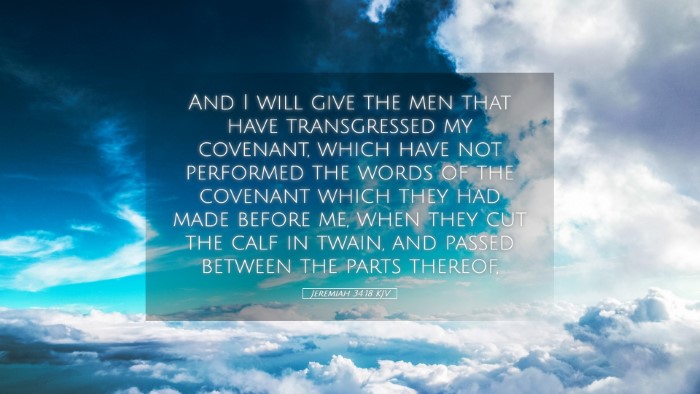Commentary on Jeremiah 34:18
Verse: "And I will give the men that have transgressed my covenant, which have not performed the words of the covenant which they had made before me, when they cut the calf in twain, and passed between the parts thereof." - Jeremiah 34:18
Introduction
The verse illustrates God’s response to His people who have failed to uphold their covenant with Him. This commentary will explore the various aspects of this passage, drawing insights from public domain sources such as Matthew Henry, Albert Barnes, and Adam Clarke.
Contextual Analysis
Jeremiah prophesied during a tumultuous time for Judah, as Babylon threatened the nation. Chapter 34 reflects the period before the Babylonian conquest when God’s people were faced with the dire consequences of their unfaithfulness.
The Covenant Significance
The term "covenant" denotes a significant biblical concept wherein God establishes a lasting relationship based on mutual commitment. The cutting of the calf symbolizes a serious commitment; it signifies a pledge to walk in God’s statutes, with dire consequences for breach. According to Matthew Henry, the "cutting of the calf" indicates the seriousness of the agreement, which would warrant severe repercussions for those unwilling to adhere.
Key Insights
- Transgression of Covenant: The phrase "men that have transgressed my covenant" indicates specific individuals who have blatantly violated their commitment to God. Albert Barnes suggests that this refers to the ruling class that initially pledged to free their Hebrew slaves but failed to follow through.
- Consequences of Unfaithfulness: God emphasizes the importance of keeping His covenant, and He assures judgment on those who fail to uphold their pledges. According to Adam Clarke, the unfulfilled promises reflect not just personal failure but a societal breach of integrity.
- The Symbol of Severity: The act of passing between the slain calf’s pieces is an ancient ritual indicating a serious oath. The severity of the consequences for breaking such an oath is underscored by both Henry and Barnes as portraying a divine judgment reflective of their betrayal.
Theological Implications
Jeremiah 34:18 speaks not only to the immediate audience but extends its implications to contemporary faith communities:
Faithfulness in Commitments
The passage reminds believers of the importance of faithfulness in their commitments, whether to God or to one another. Adam Clarke notes that the faithlessness of Judah serves as a warning for modern-day believers to recognize God’s expectations toward faithfulness.
God's Justice and Mercy
This scripture highlights God’s justice - His unwavering demand for holiness and integrity. However, it also invites reflection on His mercy, as there is always a path back toward restoration. Matthew Henry emphasizes that God’s judgments are accompanied by opportunities for repentance.
Practical Applications
- Pastors can use this chapter to encourage congregations about the gravity of keeping their word, both to God and to each other.
- Students of theology may explore how the covenant theme weaves through Scripture, illustrating God’s unyielding standard versus humanity's recurring failures.
- For Bible scholars, a deeper investigation into ancient Near Eastern practices (like covenant rituals) enriches the understanding of this passage.
Conclusion
This commentary on Jeremiah 34:18 offers profound insights into the nature of God’s covenant and the implications of faithfulness. The warnings delivered through Jeremiah resonate across ages, reminding believers of the sacredness of their commitments. As we reflect on our own covenants—whether in life, relationships, or faith—we are encouraged to strive for integrity and a deeper relationship with God.


